Filter by
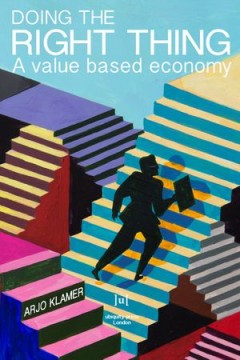
Doing the Right Thing: A Value Based Economy
This book is for all those who are seeking a human perspective on economic and organizational processes. It lays the foundations for a value based approach to the economy. The key questions are: “What is important to you or your organization?” “What is this action or that organization good for?” The book is directed at the prevalence of instrumentalist thinking in the current economy an…
- Edition
- 3
- ISBN/ISSN
- 9781909188938
- Collation
- -
- Series Title
- -
- Call Number
- -
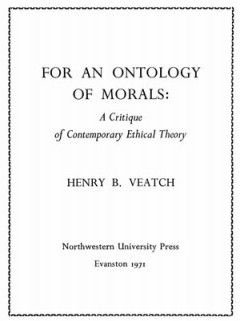
For an Ontology Of Morals
For an Ontology of Morals: A Critique of Contemporary Ethical Theory assesses contemporary trends in ethical theory, including the deontological tradition dating back to Kant, the teleological tradition of the utilitarians, the analytic movement, and the existentialist-phenomenologist movement. In refuting these trends, Henry B. Veatch argues that moral and ethical distinctions cannot be rightl…
- Edition
- 1
- ISBN/ISSN
- 9780810138759
- Collation
- -
- Series Title
- -
- Call Number
- -
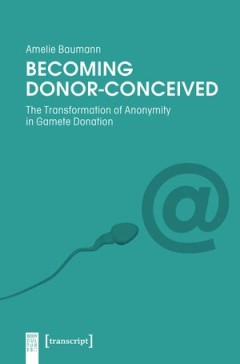
Becoming Donor-Conceived the Transformation of Anonymity in Gamete Donation
While it has been argued that anonymity in gamete donation has been brought to an end by legal changes and technological developments, Amelie Baumann suggests that this is in fact still in transformation. By focusing on the narratives of those who were conceived with anonymously donated gametes in the UK and Germany, she examines this transformative process and the role which donor-conceived pe…
- Edition
- 1
- ISBN/ISSN
- 9783839457313
- Collation
- -
- Series Title
- -
- Call Number
- -

The Spiritual Dimension of Business Ethics and Sustainability Management
This book discloses the spiritual dimension in business ethics and sustainability management. Spirituality is understood as a multiform search for meaning which connects people with all living beings and God or Ultimate Reality. In this sense, spirituality is a vital source in social and economic life. The volume examines the spiritual orientations to nature and business in different cultural t…
- Edition
- 1
- ISBN/ISSN
- 978-3-319-11677-8
- Collation
- -
- Series Title
- -
- Call Number
- -

Enacting Dismal Science New Perspectives on the Performativity of Economics
In this book, sociologists, philosophers, and economists investigate the conceptual issues around the performativity of economics over a variety of disciplinary contexts and provide new case studies illuminating this phenomenon. In featuring the latest contributions to the performativity debate the book revives discussion of the fundamental questions: What precise meaning can we attribute to th…
- Edition
- 1
- ISBN/ISSN
- 978-1-137-48876-3
- Collation
- 5 b/w illustrations
- Series Title
- -
- Call Number
- -

The Welfare of Performing Animals A Historical Perspective
This timely book describes and analyses a neglected area of the history of concern for animal welfare, discussing the ends and means of the capture, transport, housing and training of performing animals, as well as the role of pressure groups, politics, the press and vested interests. It examines primary source material of considerable interdisciplinary interest, and addresses the influence of …
- Edition
- 2
- ISBN/ISSN
- 978-3-662-45834-1
- Collation
- -
- Series Title
- -
- Call Number
- -

Health, Rights and Dignity : Philosophical Reflections On An Alleged Human Right
The idea that there is such a thing as a human right to health has become pervasive. It has not only been acknowledged by a variety of international law documents and thus entered the political realm but is also defended in academic circles. Yet, despite its prominence the human right to health remains something of a mystery— especially with respect to its philosophical underpinnings. Address…
- Edition
- 1
- ISBN/ISSN
- 9783110319262
- Collation
- -
- Series Title
- -
- Call Number
- 100 ERK h
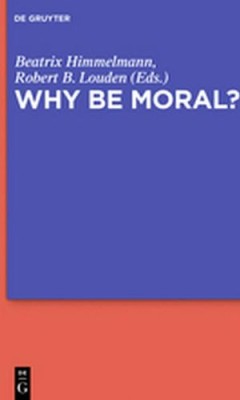
Why Be Moral?
What reasons do we have to be moral, and are these reasons more compelling than the reasons we have to pursue non-moral projects? Ever since the Sophists first raised this question, it has been a focal point of debate. Why be Moral? is a collection of new essays on this fundamental philosophical problem, written by an international team of leading scholars in the field.
- Edition
- -
- ISBN/ISSN
- 9783110366396
- Collation
- 278 halaman
- Series Title
- -
- Call Number
- 100 LOU w

Animals in Our Midst: The Challenges of Co-existing with Animals in the Anthr…
This Open Access book brings together authoritative voices in animal and environmental ethics, who address the many different facets of changing human-animal relationships in the Anthropocene. As we are living in complex times, the issue of how to establish meaningful relationships with other animals under Anthropocene conditions needs to be approached from a multitude of angles. This book offe…
- Edition
- Ed. 1
- ISBN/ISSN
- 9783030635237, 9783030635237
- Collation
- 579
- Series Title
- The International Library of Environmental, Agricultural and Food Ethics, 33
- Call Number
- 636.089 ANI a
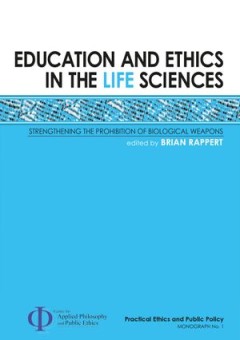
Education and Ethics in the Life Sciences : Strengthening the Prohibition of …
At the start of the twenty-first century, warnings have been raised in some quarters about how – by intent or by mishap – advances in biotechnology and related fields could aid the spread of disease. Science academics, medical organisations, governments, security analysts, and others are among those that have sought to raise concern. Education and Ethics in the Life Sciences examines a vari…
- Edition
- -
- ISBN/ISSN
- 9781921666391
- Collation
- -
- Series Title
- Practical Ethics and Public Policy
- Call Number
- 370 RAP e
 Computer Science, Information & General Works
Computer Science, Information & General Works  Philosophy & Psychology
Philosophy & Psychology  Religion
Religion  Social Sciences
Social Sciences  Language
Language  Pure Science
Pure Science  Applied Sciences
Applied Sciences  Art & Recreation
Art & Recreation  Literature
Literature  History & Geography
History & Geography